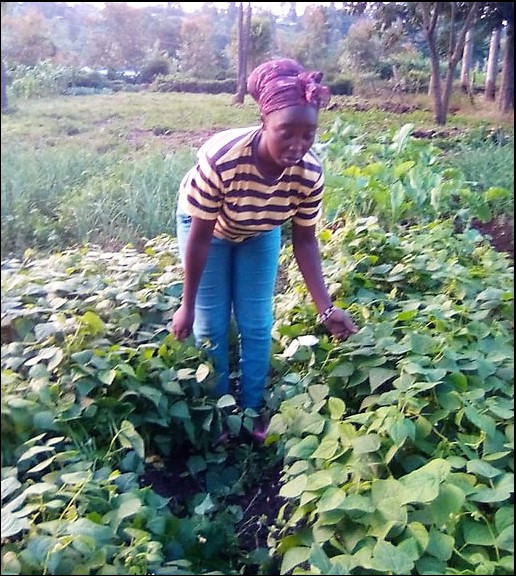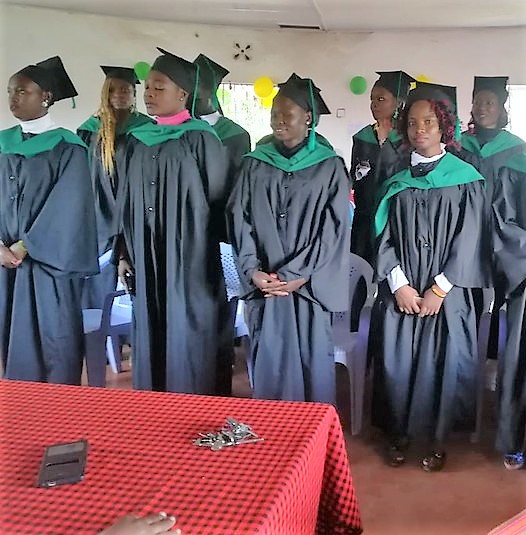By Patricia Brick
BGR’s partner, the Grow Biointensive Agriculture Centre of Kenya (G-BIACK), works to address food insecurity and malnutrition in Kenya and to raise the income of poor farmers through environmentally sustainable agricultural methods. Responding to a crisis of soil degradation in the project areas in Machakos County, G-BIACK teaches farmers methods to reclaim depleted soil while facilitating the cultivation of cash crops that will provide the greatest improvement to their livelihoods.
A BGR project titled “Enhancing Capacities of Rural Women in Kenya” provided training to 840 women farmers and kitchen gardeners, many of whom reported that their children had been hungry before and now have sufficient food. The project had four objectives:
- to improve the livelihoods of poor women living in rural communities in Machakos County;
- to share information related to family health and nutrition;
- to link the women to local organizations to support them in their livelihood development;
- to teach ecologically sound principles and techniques.
During the project period, drought struck the region, and partway through the year Covid affected in-person trainings. Our partner reports that the trainings were nevertheless highly successful at achieving the stated goals. A majority of participants created home gardens that were drought-resistant and that incorporated swales and terraces to limit water runoff. Many utilized Grow Biointensive compost methods to rejuvenate depleted soil. Participants reported feeling more independent as they grew their crops for food and income.
Kaloki Virginia appreciated learning about the value of composting organic materials to use in her garden. “I had been burning all the trash after harvesting my crops,” she said, referring to the vegetation left over after harvesting. “I didn’t know that trash was gold. Now I know. I have piles of compost from my farm, which I am using to grow my food.”
Jenifer Kamene spoke about the value of using organic fertilizers and pesticides rather than the heavy chemicals she had used in the past. She said: “Chemicals destroyed my farm and I became very poor. I was wondering what was happening in my farm because I could not produce any food due to poor soils. But just a few months after G-BIACK came, I am rich. I have food. This is my joy!”
Mary Mutheu, a resident of the Mithini community in Machakos County, also participated in the trainings this year. “The biggest need of people in Mithini is food,” she said. “A year ago, I was buying vegetables for my family every time. But now see my kitchen garden: It is flourishing with indigenous vegetables. This is what I needed. Nothing else.” She added: “May G-BIACK reach out to all of this region with this knowledge. May they continue teaching women until all of them create a kitchen garden like mine.”
Patricia Brick is a staff writer for Buddhist Global Relief.


